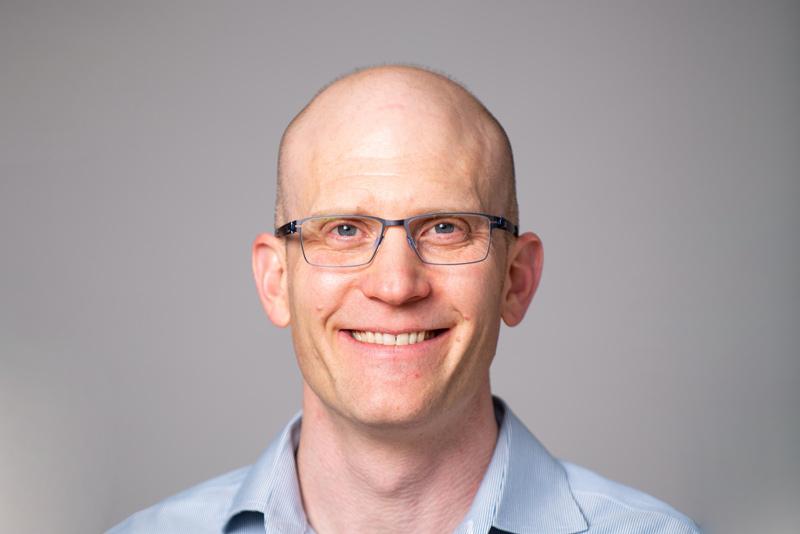-
About
- Departments & Offices
-
Academics
- Public Health
- Biomedical Sciences
- Physician Assistant
- Special Master’s (MBS)
-
Admissions & Financial Aid
- Tuition & Fees
-
Student Experience
-
- Student Resources by Program
- Academic & Student Support
- Wellness & Wellbeing
- Student Life
- Events & Traditions
-
-
Research
- Research Labs & Centers
- Tufts University-Tufts Medicine Research Enterprise
-
Local & Global Engagement
- Global Health Programs
- Community Engagement
Faculty Spotlight: Berri Jacque
"I am often asked what would look good on my resume? I think the best advice I have is to do what you love and let your passion lead the way."

Faculty in our MBS program teach medical education courses for various programs, are highly involved in the School of Medicine and are devoted to student success. Meet Associate Professor, Berri Jacque, PhD, who serves as an MBS pre-professional advisor and runs the Center for Science Education at Tufts.
What courses do you teach?
"I teach immunology in the Medical, MBS, Dental, PA, and graduate programs at the School of Medicine. To name a few, I co-direct MBS Immunology (MBS 204) and Dental Tissue Injury and Host Defense (DENT-121), and I teach in Scientific Foundation of Medicine, Microbiology, Infectious Disease & Immune System (MED113)."
What do you like about teaching MBS students?
"I love the energy and engagement of our MBS students. MBS students are inquisitive and highly motivated, and I always look forward to the questions they asked in class. I also enjoy the questions and discussion during office hours—which tends to be about content in the course but also about the applications of immunology in life and medicine."
What are your main responsibilities as an advisor in the MBS program?
"The advising process begins on day one of the program. I meet with my advisees as a group, then I meet with each advisee individually to hear about their path getting to the MBS program and their future goals. I think the most important aspect of my role as an advisor is to create an individualized plan with each student. Early meetings tend to focus on study skills and life habits that will promote success in the courses. As the year progresses, our meetings usually shift towards discussing classroom outcomes and working to refine study and exam skills. By mid-fall, most advisees are looking to further their experiences outsides the classroom—this might include volunteerism, shadowing, or some other experience to explore medicine. By the spring semester, the focus shifts to application preparation, this includes reviewing personal statements, and guidance around MCAT studying and letters of recommendation. I also have the privilege of writing recommendations for my advisees and serving as a thesis advisor if they select an immunology topic."
Why did you choose to teach at Tufts?
"I am really proud to say that I am a Jumbo—I received my PhD in Immunology here at Tufts School of Medicine. I then completed a postdoctoral fellowship in curriculum and design and evaluation at Tufts before joining the faculty in the Department of Medical Education. I think something that is unique about my background is my experience as an immunologist and an education researcher. When a role opened in Medical Education, it was an ideal fit. I have the privilege of teaching in a student-centered environment and working with amazing students in multiple programs. I also run the Center for Science Education at Tufts. I really can’t imagine a better place to teach!"
What is a piece of advice you would like to share with Tufts students?
"Follow your passion! I am often asked what would look good on my resume? I think the best advice I have is to do what you love and let your passion lead the way."
What is one of your proudest achievements here at Tufts?
"I am very proud of my role in building the Center for Science Education. As stated on our department’s webpage, 'Synergizing with the primary mission of the Department of Medical Education to educate a diverse population of healthcare leaders, the Center for Science Education (CSE) was founded in 2009 to design and study new approaches to engage high school students from under-resourced and underrepresented backgrounds in science. To accomplish this, the CSE leverages collaborative partnerships that bridge the divide between biomedical scientists, high school educators, and education researchers.'
I think our work to design and disseminate biomedical and health-science curricula for teachers and high-school students is critical for broadening participation in science and increasing scientific and health literacy. I also think that my scholarship in this domain has really added a lot to how I teach at the medical school. And I have enjoyed bridging my work at CSE with the MBS program, for example I am a faculty mentor for a new MBS Mentoring Program that provides peer mentoring in a Boston Public School—I have worked with that school for almost a decade."
Department:
Medical Education